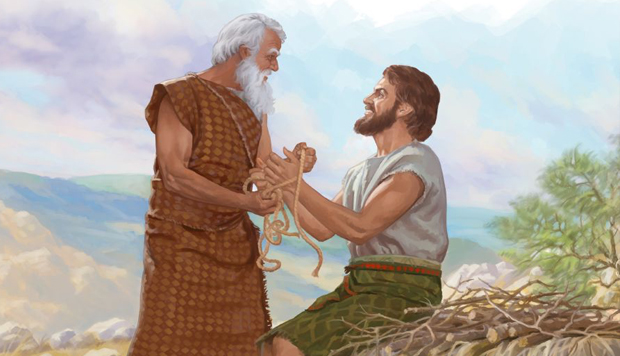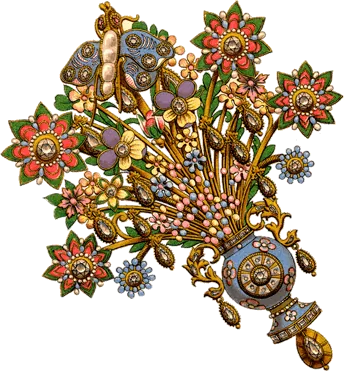A burnt-offering represents the unparalleled devotion of the worshiper, symbolically committing his entire essence, the body (what is seen), the mind (what is unseen), to the service of God.
Isaac: The Qualified Offering
Take your son, your only son, whom you love--Isaac--and go to the region of Moriah. Sacrifice him there as a burnt offering on a mountain I will show you. (Gen. 22:2)
According to the general rules of offerings, a burnt-offering was one that was completely burned on the altar and elevated to God. As the first category of five general offerings that could be brought by individuals in the days of the Temple, the olah-offering was brought by individuals seeking to atone for sinful thoughts or desires that were never carried out. It was also brought by everyone who ascended to Jerusalem for the Shalosh Regalim [Three Pilgrim Festivals]. The offering itself represented the unparalleled devotion of the worshiper, symbolically committing his entire essence, the body (what is seen), the mind (what is unseen), to the service of God. It was this devotion of service that God pleaded with Abraham to bring when he said, “Please take…”
With regard to the Akeidah, the sacrifice of Isaac deviates astonishingly from the general rule of korbanot: Human sacrifice is an affront to God and strictly forbidden in the Torah. What then was the symbolism of God’s request and Abraham’s action? Following the pattern of the general offering, the olah contained a clause of genuine self-sacrifice before God: “he shall bring it to the entrance of the Tent of Meeting, voluntarily, before Hashem (Lev. 1:3). The voluntary nature of the olah ensured that no individual could be compelled or coerced to bring the offering outside his own desire. Such devotion was taken into consideration with the fact that the cost of the korban would necessitate resources that would not reciprocate a physical reward i.e. the flesh of the offering was not consumed. With regard to Abraham, what could be more costly than is only begotten son whom he loved? Nevertheless, both Abraham and Isaac were willing participants:
“Father, I am a youth, and I am concerned that my body may tremble from fear of the knife, and I will thereby cause you trouble, and perhaps even invalidate the slaughter, or that it will not count for you as a sacrifice. Rather, bind me very well.”
In this manner, the Akeidah serves as a prototype for all Temple services – in so much as Abraham brought nothing more than his hopes and dreams, everything he had been promised and desired in his son Isaac; and he lay them willingly before God on the altar. This is the quintessential element of every korban and every individual’s reasonable act of service (Rom. 12:1-2)
Abraham: The Qualified Priest
While Isaac’s offering goes outside the bounds of a standard korban, the Midrash nevertheless alludes to several qualifications concerning Abraham’s eligibility to perform the service. For example, the Sages elucidate on Abraham’s initial apprehension when first learning that he would have to perform the service himself:
“He said to him, ‘Master of the Universe! Can there be a sacrifice without a priest?’ Replied the Holy One, blessed is He, ‘I have already appointed you as a priest,’ as it is written, You shall be a priest forever.”
The Sages interpret the words of Psalm 110:4 as being addressed to Abraham. Interestingly, the writer of Hebrews attributes the same verse to Yeshua as he concludes a lengthy discourse concerning the Messiah’s eligibility to function as kohen in the heavenly Temple. The heavenly Temple, which stands opposite the holy Temple in Jerusalem, is the object of numerous teachings by our Sages. R’ Shimon bar Yochai sites Moriah’s proximity to the supernal Temple as the primary reason for God’s selection of the location for the Akeidah.
With all of this taken into consideration, Abraham’s concern regarding his own eligibility speaks to his perception of the far-reaching impact that his service would have on the eternal destiny of his progeny and the final redemption. The Akeidah would not be like the olah-offerings he had performed previously Such an extraordinary service would mandate a truly qualified emissary. Therefore, the Midrash expounds on Abraham’s qualification to function as a kohen.


